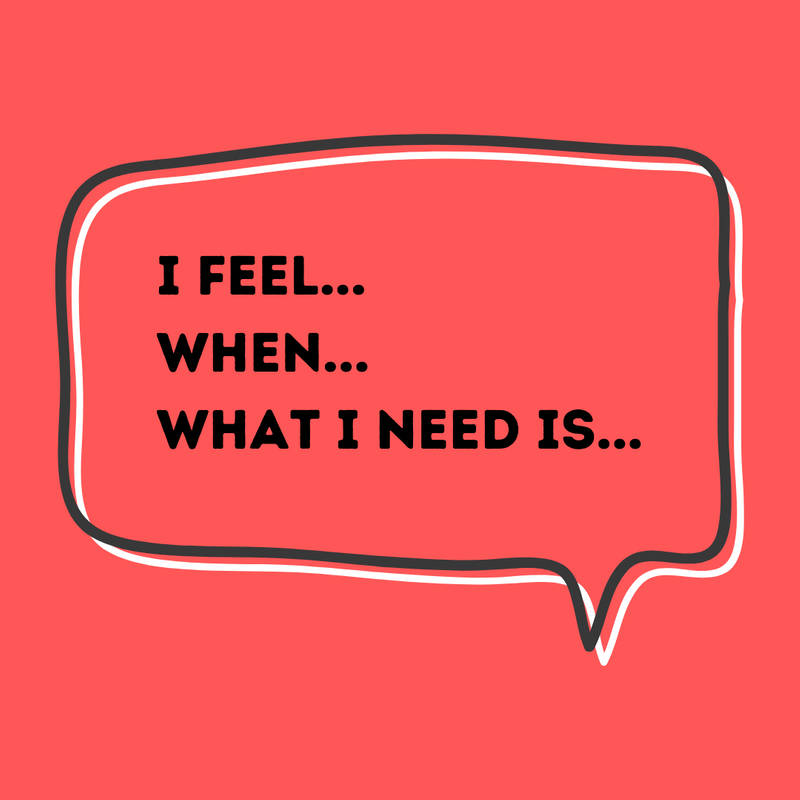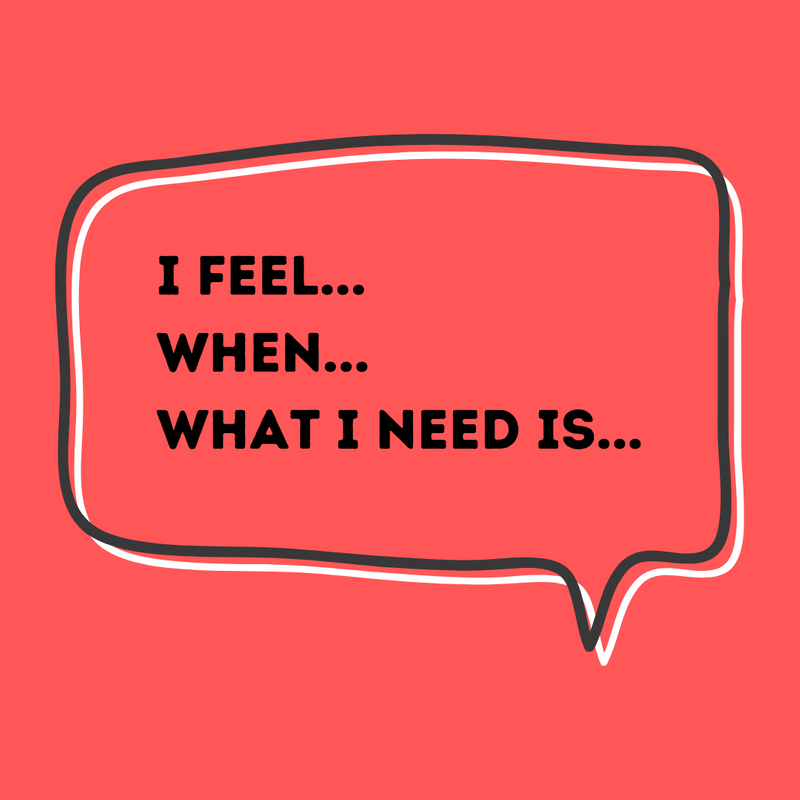Communicating can be hard.
Especially when emotions are running high.
If we aren't tactful, what was intended as an innocent comment can escalate. A conversation can quickly turn into an argument.

The "You..." Tendency
How often have you heard (or said):
You make me so angry!
You always do this.
You never listen.
When we get upset, many of us have a tendency to start the conversation by identifying what the other person has done wrong.
We speak as though they are the cause of our feelings.

In doing so, we shift the focus from our feelings to blame for the other person. As soon as we do this, we make it much less likely that the other person will empathize with us.
When we use "You" statements, the other person will likely feel defensive and try to justify their behaviour.
Changing the Focus
Instead of starting with the other person, we can shift the focus to our own feelings.
"I" Statements are a tool to share emotions mindfully. An "I" statement has a basic formula:
I feel [1. Emotion], when [2. Cause]. What I need is [3. Desired change].
Let's break this down:
Name your emotion to tame it. Do you feel scared, sad, frustrated, lonely?
Describe what triggered you. What was the behaviour that prompted this emotion?
What support do you need? Describe what you would like to see change.

Quiz
What makes "I" statements effective?
"I" Statements In Action
In the following clips, Jan is frustrated that her family member isn't doing their share of household cleaning. Listen to the difference between her messages when she uses "You" statements and "I" statements.
Listen Jan sharing her feelings in a "You" focused audio clip.
Listen to the same sentiment delivered using an "I" statement.

Quiz
What's the difference between the above "You" and "I" audio clips?
Subscribe for more quick bites of learning delivered to your inbox.
Unsubscribe anytime. No spam. 🙂
Let's Practice

Imagine this.
You've been working on a project and your partner has missed several deadlines. You're worried that the project is now at risk of failure because your partner hasn't been doing their share of the work. You can feel yourself getting angrier and angrier, and want your partner to do their part.
Quiz
How could you start to address the issue?
Take Action
Starting a sentence with "I" instead of "You" might seem like a small adjustment. But it can have a big impact on how someone else hears your message.
The next time you find yourself upset by someone else's behaviour, pause. Before you respond, use the "I" statement formula to gather your thoughts and take ownership of your feelings.

Did you know?
Your feedback matters to us.
This Byte helped me better understand the topic.
